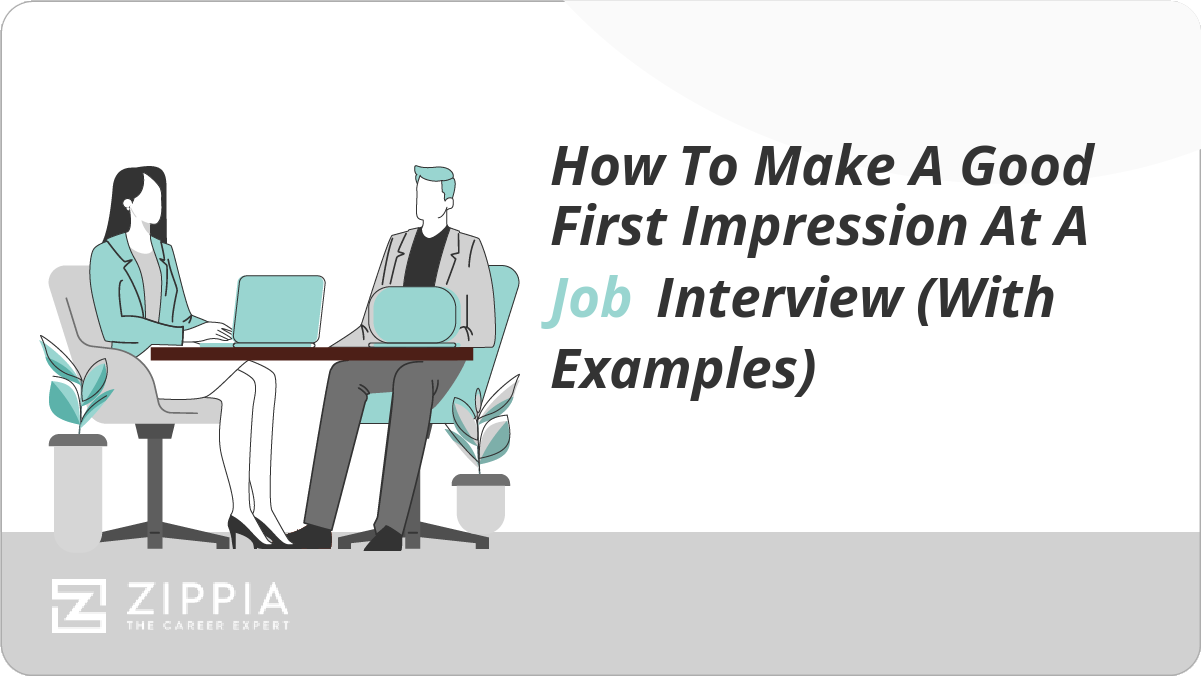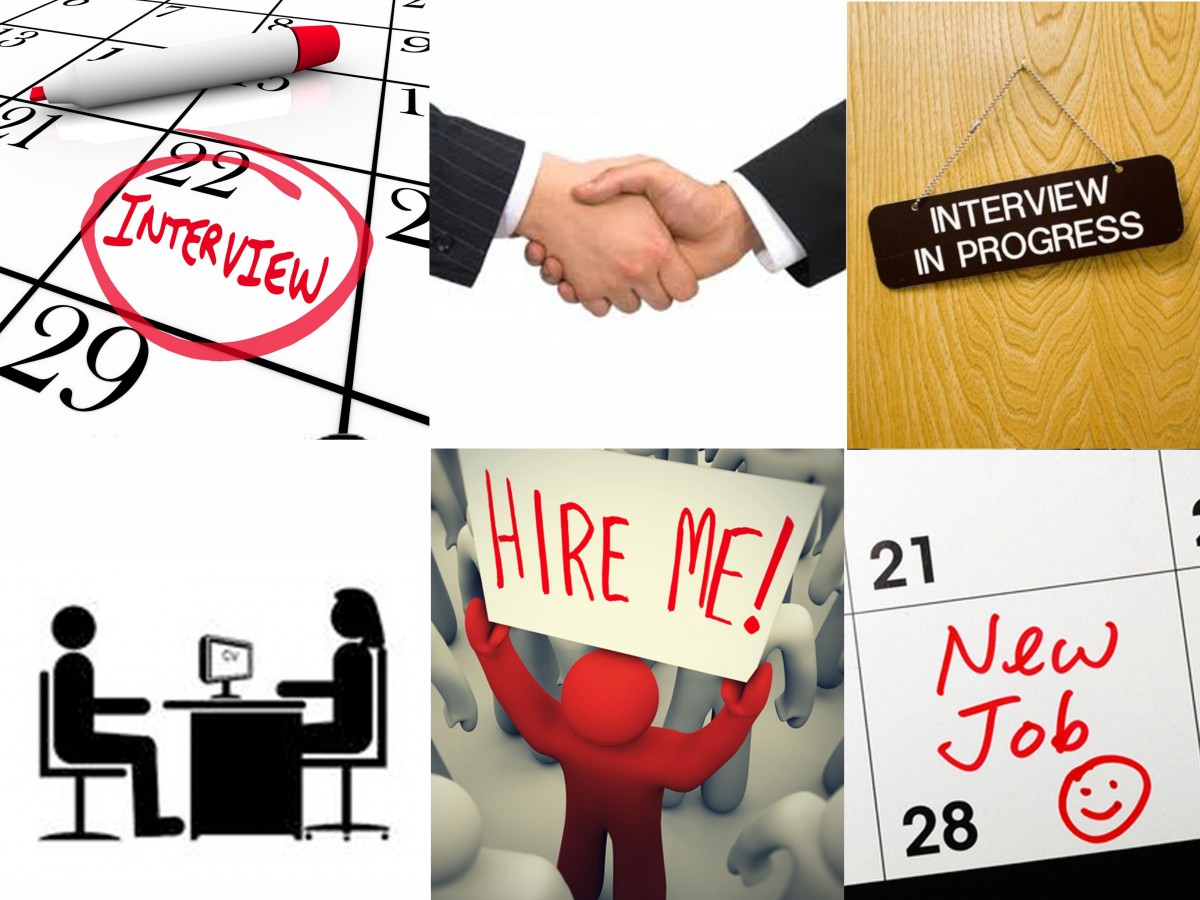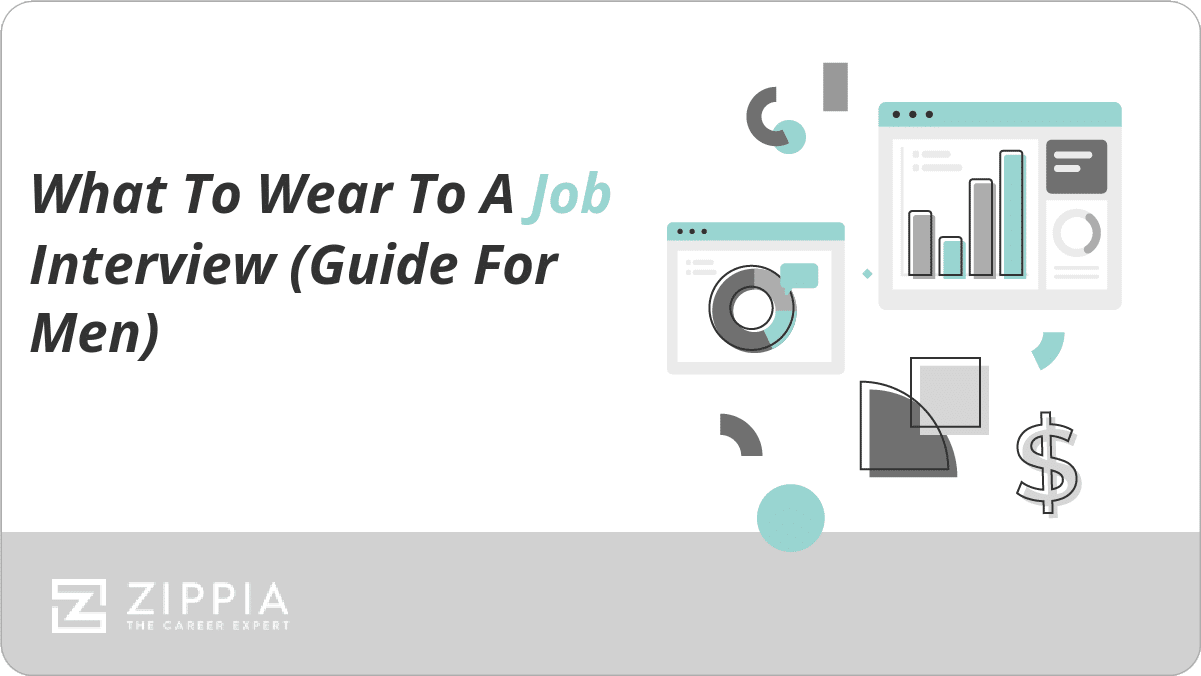- Interview Prep
- Star Method For Answering Questions
- Interview Preparation Checklist
- Star Interview Questions
- Words To Use In An Interview
- Mock Interview Preparation
- How To Make A Good Impression
- Bring Writing Samples
- How To Relax Before An Interview
- Interview Coaching
- Common Video Interview Mistakes
- Common Phone Interview Mistakes
- How To Ace Your Interview For A Remote Job
- Good Weaknesses For A Job Interview
- Good Strengths For A Job Interview
- How To Prepare For A Phone Interview
- Talk About Being Laid Off
- How To Decline An Interview
- How Early Should You Arrive For An Interview
- Interview Etiquette Tips
- Phone Interview Tips
- How To Ace A Phone Interview
- Onsite Interview Tips
- Questions To Avoid Asking
- Interview Prep Tips
- Make A Great First Impression
- Types Of Interviews
- Open Interviews
- Video Interviews
- Promotion Interview
- Internal Interview
- Informational Interview
- Panel Interview
- Online Interview
- Third Round Interview
- Final Interview
- Skype Interview
- Zoom Interview
- Group Interview
- Interview Questions About Your Experience
- Remote Interview
- Interviews For Teen Jobs
- Lunch Interview
- Panel Interview Tips
- Communication
Find a Job You Really Want In
Making a standout impression starts the moment you enter the building, from greeting the receptionist to your first exchange with the interviewer.
The goal is to carry that momentum from start to finish, ultimately landing the job or progressing to the next round of interviews.
Key Takeaways:
-
Your first impression should consist of preparing for your interview, the actual interview itself, and after the interview is over.
-
The more confident and at ease you feel heading into your interview, the better the impression you will make.
-
Making a good first impression focuses less on your actual resume and qualifications, and more on how you interact with the interviewer.

How to Make a Good First Impression
Now the question is how do you make a good first impression outside of providing thoughtful answers throughout the actual interview. Part of making this happen involves what you do before the interview. Taking time to thoroughly research the company will make it easier to create natural talking points outside of your interview questions.
Finding out more information on your recruiter and/or interviewers through professional networking sites like LinkedIn can also help with relationship building. The more background information you have, the more comfortable you will be in your interactions.
Here are a few more tips on making the best impression to secure the job:
Before the interview
-
Practice makes perfect. Practice, practice, practice. Go over common interview questions before the interview so that you are clear in your delivery. For example, you should be able to concisely answer questions about why you are a good fit or what makes you want to work for the company.
You will also want to go over potential curve balls or somewhat tricky questions, such as what your salary expectations are or the more interesting “describe yourself in 140 characters or less”. This could be accomplished in a mock interview setting or simply rehearsing different scenarios in the mirror. Either way, being confident and clear in your answers is a great way to make a good impression.
-
Double-check the job listing. While you already have a great understanding of the role you applied for, you still want to reread the original job posting. The goal should be to take note of any keywords or traits that are found prominently in the description. Throughout the interview, you should highlight how you embody or have experience in those areas.
It will make it easier for the interviewer to see how you fit into the position. It will also show that you have a thorough understanding of what is expected, making the interviewer more confident in your candidacy.
-
Practice your handshake. While an awkward handshake likely will not eliminate you from candidacy, we want to do everything we can get those added points from the interviewer. Wait for them to put their hand out, and then meet them with a firm yet comfortable handshake.
You should also make eye contact as this is another way to show confidence and give an authentic smile. This will likely be your first interaction with the interviewer, and you want to make it count.
-
Bring your resume. Bringing along your resume falls into the job interview 101 category, but it is still worth the reminder. Some applicants might forget to review and make edits to their resumes before printing, checking for any grammatical errors or typos.
Make sure that your objective and qualifications also align with the role you are applying for, as it should be tailored to the specific role. Imagine applying for an editorial position but your objective still reads that you are looking for retail during your actual interview.
You should also always bring more than one copy, as being prepared for more than one interviewer will also be impressive.
-
Dress the part. You should dress for the role that you want. There are some occasions where the recruiter will tell you if the company is more casual or formal, but always use your best judgement. Even if you have seen pictures of employees in flip flops on the company website, still dress professionally even if this does not necessarily mean a full pantsuit.
-
Be punctual. Nothing makes a worse impression than arriving late to a job interview. Being punctual is one of the traits that recruiters immediately look for in a potential candidate. Being on time shows that you are reliable and able to adhere to company standards.
A good rule of thumb is to arrive 10-15 minutes ahead of the scheduled interview time. To ensure that you have a timely arrival, there are a few things that you can do the night before.
Set multiple alarms so that there is less risk you miss one, and also leave the house earlier than you normally would. GPS the location and add in a time buffer in case there is any traffic on your way there.
Being well-rested and arriving early both make you look more favorable to interviewers.
-
Consider your body language. While verbal communication is important, nonverbal behavior also impacts how a conversation unfolds. Think about your overall body language from the moment you arrive to the job site. Exude confidence, sit with sit straight up in the waiting area, and have an overall positive demeanor.
During the actual interview, you want to make the same considerations. Try not to slouch, be open and receptive. Small aspects like good posture versus bad posture is something that will be noted by your interviewer. The same applies for an online or video interview.
-
Breathe. Interviews can be nerve-wracking, but you never want your interviewer to feel this energy. That is why taking a second to breathe can be one of the most helpful ways to get over first-interview jitters. Being that you will have arrived early to your interview, you will have time to step aside and take a quick breather before it formally begins.
Take a second to remind yourself that you are an ideal candidate, visualize securing the position, and walk into the interview with confidence. Simply not having anxiety can make your interview go more smoothly and successfully with the interviewer you are trying to impress.
-
Be enthusiastic. Enthusiasm can a long way in the eyes of a recruiter. Employers want to know that the people that work for them want to be there, so expressing your interest is important. This begins with telling them why you want the opportunity, but you can also be enthusiastic with your overall demeanor.
Be passionate when talking about all of your experiences, even the ones at a previous job. Use that to show them you have a great personality and will bring the same positivity to the new role.
-
Be respectful. You should show respect to everyone that you encounter on interview day. Greet the receptionist, say hello to any security, and be mindful of anyone else in the vicinity. You never know who you may run into later, and it also just common courtesy.
Being respectful also means speaking at reasonable levels, not being on your phone while business is being conducted, and also maintaining a positive attitude while you wait. During the interview, a good tip is to always remember the name of the person that is speaking to you and properly address them.
-
Always be truthful. Getting caught in a lie or exaggerating the truth is not a way to make a good impression. Always be truthful when discussing your credentials and accomplishments. If you stay truthful, these attributes will be easy to remember and you will have more conviction when selling yourself to the interviewer.
Sticking to what you know will also help you avoid saying any words to describe yourself that could be misconstrued. The truth is always the best way to go.
-
Tell stories. To build an even stronger connection with the interviewer, tell stories that relate to the position at hand. Being able to provide more than just cookie-cutter interview responses will impress the interviewer and also make the interview more memorable.
You can use the STAR method to help guide your narratives and make sure they cover the appropriate aspects.
-
Think of questions. Your job interview should not only be a way for the employer to get to know you, but for you to learn more about the organization. Taking an interest in the interviewer and the company as whole will be impressive because it shows you are taking initiative to dig deeper.
Potential questions can surround how the interviewer got to their position within the company, or what is most important to them when it comes to company culture. Take time to ask thoughtful follow-up questions.
-
Ask about next steps. When the time is appropriate after the interview, as your interviewer or hiring manager about the next steps. They will likely tell you this will be a follow up email with how the interview went and any next steps should they be moving forward with the hiring process.
-
Send a thank you. Making a good impression can go beyond the interview. Make note of who interviewed you and ask for the contact information of anyone whose details you might not have. Many candidates choose to send a follow-up email thanking the interviewer as it gives them time to craft a response at their convenience.
Your thank you is also one final chance to briefly remind the interviewer why you are a good candidate, and it also expresses gratitude for their time.
Interview day
After the interview
Is Your Outfit IMportant For Making A Good Impression?
Dressing to impress is not a new concept, but how important is it really?
Very, according to hiring managers and certain studies.
It has been proven that those who are more “likeable” have a better chance of being hired, and one of the easiest ways to do this is by showing that you can fit in. Personality is one aspect, but looking the part is the other key piece.
You want your employer to see you and get the feeling that you already belong. That is why doing your own research on how employees dress within the organization is crucial. Look on the company website but also look into social networking sites and any blogs that might be published by the company.
The key is to be neither over nor underdressed. Make sure all pieces of the ensemble are neat and fit appropriately. Your perfume or cologne also should be considered as part of your outfit, and make sure it is not overpowering on the day of your interview.
Prepare For The Unexpected
While a general tip is to practice questions and answers ahead of an interview, there are additional steps you can take to prepare for unexpected questions. Making a list and writing things down may help you better retain information.
On your list, try to find the most obscure but possible questions that you feel you could stumble on if asked. This is also a good exercise to get your mind in the right state for curveballs during the actual interview.
Looking on job sites for interview questions may also reveal scenarios you might not have considered. Real interview questions and answers from current or former employees can be extremely insightful.
- Interview Prep
- Star Method For Answering Questions
- Interview Preparation Checklist
- Star Interview Questions
- Words To Use In An Interview
- Mock Interview Preparation
- How To Make A Good Impression
- Bring Writing Samples
- How To Relax Before An Interview
- Interview Coaching
- Common Video Interview Mistakes
- Common Phone Interview Mistakes
- How To Ace Your Interview For A Remote Job
- Good Weaknesses For A Job Interview
- Good Strengths For A Job Interview
- How To Prepare For A Phone Interview
- Talk About Being Laid Off
- How To Decline An Interview
- How Early Should You Arrive For An Interview
- Interview Etiquette Tips
- Phone Interview Tips
- How To Ace A Phone Interview
- Onsite Interview Tips
- Questions To Avoid Asking
- Interview Prep Tips
- Make A Great First Impression
- Types Of Interviews
- Open Interviews
- Video Interviews
- Promotion Interview
- Internal Interview
- Informational Interview
- Panel Interview
- Online Interview
- Third Round Interview
- Final Interview
- Skype Interview
- Zoom Interview
- Group Interview
- Interview Questions About Your Experience
- Remote Interview
- Interviews For Teen Jobs
- Lunch Interview
- Panel Interview Tips
- Communication





